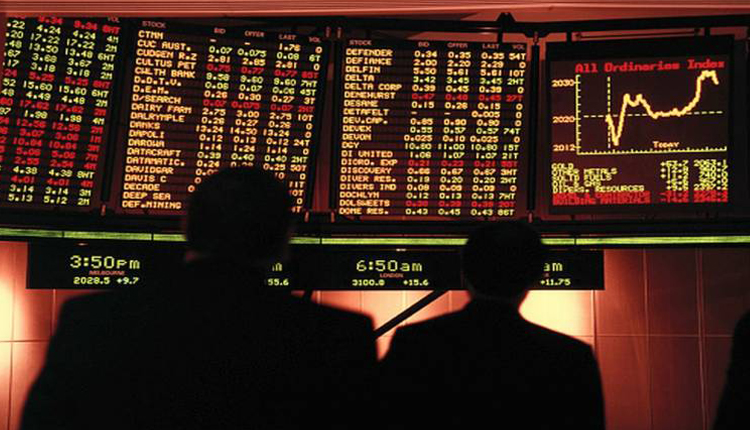Asian shares mostly edged higher on Monday as investors digested last week’s trade talks and U.S. jobs numbers, while U.S. crude topped the $70 mark for the first time since 2014 during late morning trade.
In Japan, the benchmark Nikkei 225 came under pressure in morning trade, with the index slipping 0.1 percent, off its morning lows. The Topix traded lower by 0.05 percent as gains in the mining and oil subindexes were offset by losses in the financial and technology sectors.
Over in Hong Kong, the Hang Seng Index climbed 0.51 percent as the financials, property and tech sectors, the three most heavily weighted sectors on the index, reversed early losses to trade in positive territory. Gains were led by the energy sector, with CNOOC gaining 2.91 percent.
Mainland stock indexes also advanced, with the Shanghai composite rising 1.21 percent and the smaller Shenzhen composite adding 1.52 percent.
Australia’s S&P/ASX 200 tacked on 0.48 percent amid broad-based gains, with energy and materials names climbing. The heavily weighted financials sector was up 0.33 percent.
MSCI’s broad index of shares in Asia Pacific, meanwhile, edged up 0.37 percent.
On the commodities front, oil prices extended gains after settling about 2 percent higher in the last session. Gains on Monday came as markets focused on both the possibility of the U.S. re-imposing sanctions against Iran and an economic crisis in Venezuela.
Re-introducing sanctions on Iran, which is currently the third-largest oil producer in the Organization of the Petroleum Exporting Countries, could result in as many as 1 million barrels of Iranian crude supply being cut a day.
U.S. West Texas Intermediate crude rose 1.02 percent to $70.43 per barrel, trading above the $70 level for the first time since November 2014. Brent crude futures advanced 1.15 percent to $75.73.
“While U.S. President Donald Trump refuses to reveal his decision on whether he will ratify the deal before May 12, the U.S. administration appears to be positioning itself for negotiations for a new deal,” said ANZ analysts in a morning note.
The mixed performance in Asian markets came after U.S. stocks notched strong gains on Friday despite a mixed jobs report, with Apple getting a boost following news that Warren Buffett’s Berkshire Hathaway had bought 75 million shares in the tech company in the first quarter.
Investors also digested the release of April nonfarm payrolls, which rose by 164,000. That was below the 192,000 figure forecast by economists in a Reuters poll, but U.S. unemployment dropped to an 18-year low of 3.9 percent.
Markets in Asia had closed in negative territory in the last session amid concerns over U.S.-China trade talks, which the two countries agreed to continue after the end of a two-day meeting last week.
“Global risk appetite may continue to part ways amid a stalemate in the U.S.-China trade talks,” OCBC Bank said in a morning note.
In currencies, the dollar gave back some of its recent gains after finishing last week broadly higher. The dollar index, which tracks the dollar against six currencies, traded at 92.467 at 11:57 a.m. HK/SIN.
Emerging market currencies took a beating last week on the back of recent strength in the greenback, with the Argentinean peso falling more than 6 percent last week.
Against the safe-haven yen, the dollar slipped to trade at 108.97, compared to the 109 handle seen through most of last week.
On the corporate front, Singapore’s second-largest bank by total assets, OCBC, reported net profit after tax for the first quarter rose 29 percent to 1.11 billion Singapore dollars ($833 million), missing an average Thomson Reuters forecast of S$1.18 billion. Shares declined 2.27 percent.
Elsewhere, Australia’s Westpac announced Monday that its first-half cash earnings rose 6 percent to 4.2 billion Australian dollars ($3.2 billion), above the A$4.17 billion forecast in a Reuters poll. Westpac shares were up 1.44 percent. Markets in South Korea were closed for a holiday.
Source: CNBC


